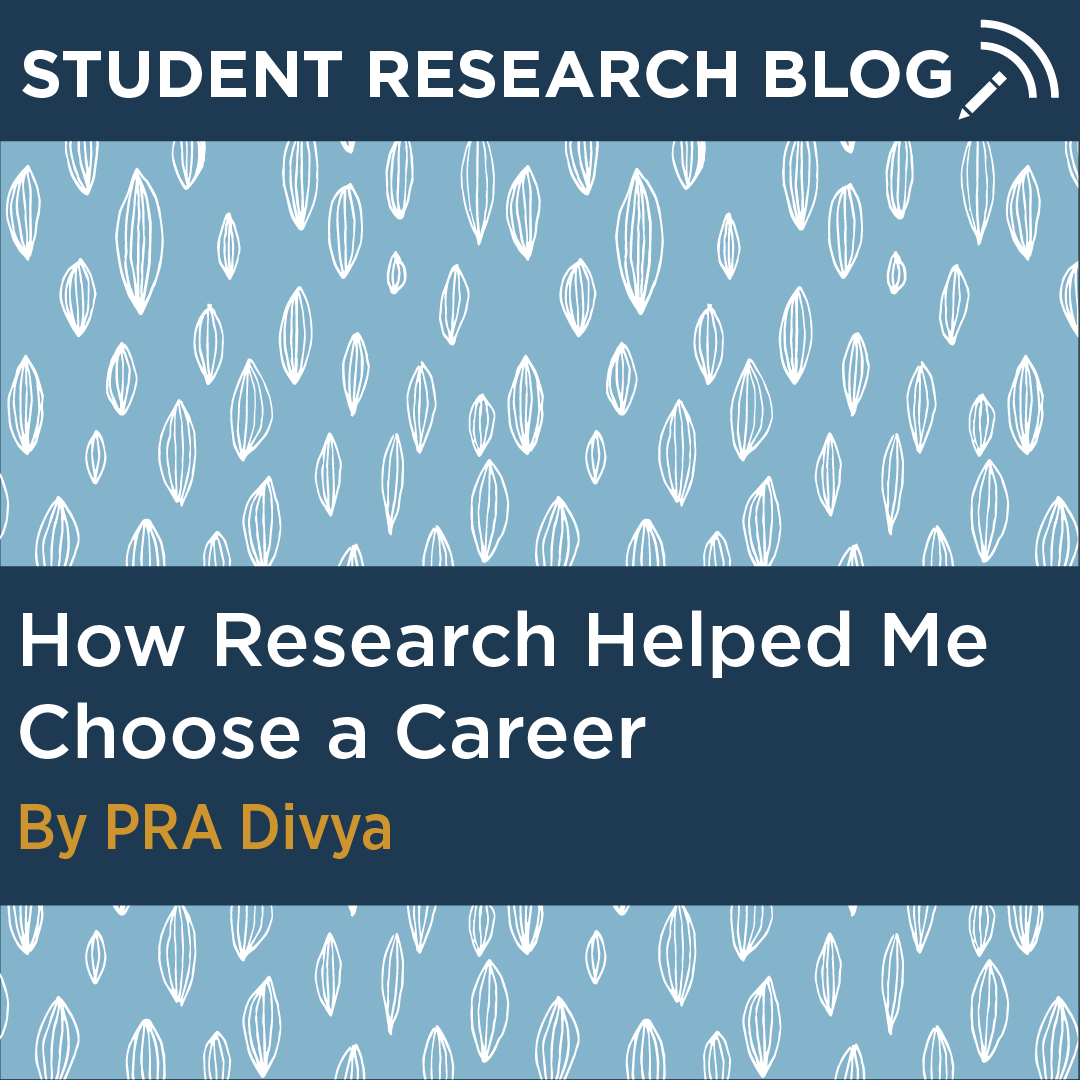By Divya Ganugapati, OUR Peer Research Ambassador
 As an undergraduate student there is a lot of pressure on you to figure out exactly what you want to do with the rest of your life at such a young age. Enrolling at UConn at 17 years old, I had no clue what some of the 110+ majors offered here even meant (Cognitive Science? What?) let alone having to choose one.
As an undergraduate student there is a lot of pressure on you to figure out exactly what you want to do with the rest of your life at such a young age. Enrolling at UConn at 17 years old, I had no clue what some of the 110+ majors offered here even meant (Cognitive Science? What?) let alone having to choose one.
Before switching to a Cognitive Science major, I originally was a Physiology and Neurobiology major. I knew I was interested in a field relating to the brain since I had so many brain-oriented unanswered questions. Why are humans the only species to industrialize? What is the difference between humans, animals, and machines? What happens when your brain gets injured? How can some people switch between two or more languages? These questions are what motivated my major change from a purely physiological and anatomical education of the brain to an interdisciplinary understanding of the brain’s application to language, emotion, and personality.
Deciding a major was only the first step in navigating the vast scope of career choices available to me. Finding a career that best fit my lifestyle and interests was no easy task but luckily, finding answers to the many questions that led me to Cognitive Science also led me to the world of research. Throughout my four years at UConn, I conducted research in the Language and Brain Lab with Dr. Emily Myers and created my own study with Dr. Rachel Theodore in the Spoken Language and Processing Lab. Research allowed me to develop my own questions and experiment to answer those scientific questions.
Having these research experiences complemented my Cognitive Science courses but also built on them in a hands-on environment. Taking classes such as SLHS 4245: Neuroscience of Cognitive and Communication Disorders and PSYC 3500: Psychology of Language provided a solid foundation for understanding the organization of the brain, how the brain modulated language, and physiological and social implications of disorders and injuries. Doing research took my education to a higher level; for example, I used what I learned in class about the causes and symptoms of aphasia and elevated that knowledge by working hands-on with brain scans of aphasiacs to see specific areas of activation while doing tasks.
My major motivated my participation in research and my time doing research reinforced my passion for Cognitive Science. Together, research and my major coursework revealed a new interest in neurological disorders by creating new questions. How do disorders like Parkinson’s disease and Alzheimer’s disease arise? What are the treatment plans? What medications and cognitive therapies will prolong life?
Thanks to choosing a major based on my interests, I was able to get involved in research to build upon those interests and finally uncover a career as a physician. Even though I am not looking for a career in research, participating in undergraduate research was pivotal in deciding I want to pursue medicine. Don’t be afraid to use research as a stepping stone to find the best major for you and taking the time to piece coursework with research to find a career that combines both.
Divya is a senior majoring in Cognitive Science and minoring in Chemistry. Click here to learn more about Divya.